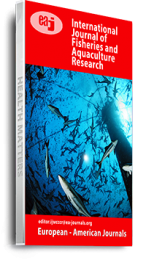During the recent years, biological weed control in Egypt has faced questioning for its ability to submerged weeds control; and its application does not reduce the costs of canals maintenance. Therefore, the study aims to verify the performance and costs of grass carp in controlling submerged aquatic weeds and compared to mechanical control in some earthen and lined canals in Aswan governorate. Six earthen and lined canals with a high rate of submerged aquatic weeds growth were selected in the irrigation administration of Aswan governorate. The results of the study showed that the biological control of submerged weeds by grass carp led to decrease the percentage of submerged weeds infestation in the canals that subjected to biological control compared to the similar canals that subjected to mechanical control. Grass carp prefer to feed on submerged aquatic weeds types in the studied canals as follows: Vallisneria spiralis, followed by Ceratophyllum demersum and finally Myriophyllum spicatum. The value of the condition factor for grass carp was above 1, indicated good condition of the fish growth. Water quality was good and valid for grass carp growth. The average decreasing in the costs per kilometer for the canals and reaches that subjected to biological weed control was 7880 LE, with a decreasing percentage of 38% compared to mechanical control. It is recommended to control submerged aquatic weeds using grass carp in suitable Egyptian canals through applying an integrated management program. The program is combination of mechanical removal process of weed a one-time before stocking fish, then, stocking rates of 100 kg/ha.
Keywords: Costs, Egyptian canals., Performance, biological weed control, grass carp, mechanical weed control

